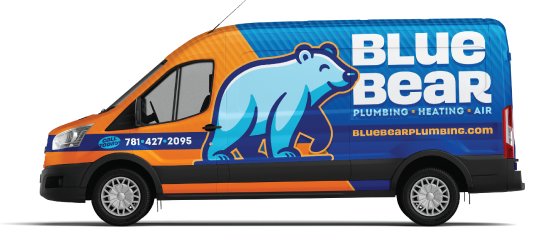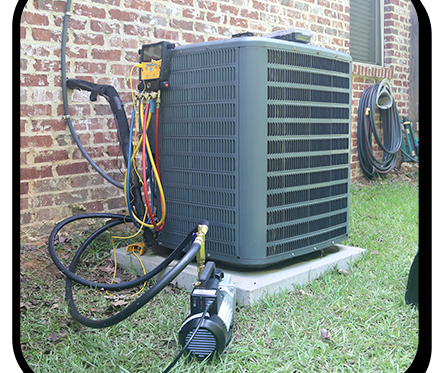Things to Think About When You Want to Replace Your HVAC System
The decision to replace an existing HVAC system typically comes with fear, uncertainty, and confusion. Replacing an HVAC system is a considerable investment. However, it is essential to know precisely what you are investing in and how long your existing system will last before it needs to be replaced. Depending on the age and quality of your current HVAC system, you may need to replace it sooner than expected.
At Blue Bear Plumbing, Heating & Air Services, we estimate that the average life expectancy of an HVAC system is between 15 and 20 years. The lifespan is usually based on the quality of your system. Still, it can also be affected by how often you use it, how much ice and snow the unit experiences during that time frame, and the outside temperature. If you want to know your heating and air conditioning system’s condition, give us a call.
Our operations as Blue Bear Plumbing, Heating & Air serve the citizens of Greater Boston and spread across to the Cape. We offer residential and commercial clients quality solutions to their HVAC and plumbing problems. This article is about the items to factor in when replacing your HVAC systems. It includes tips on what to consider, when to get your system replaced, and the advantages.
9 Considerations to Make When Replacing Your HVAC System
The price of HVAC units varies depending on the size, type, features, and geographical location. Knowing what to consider when buying or replacing your HVAC system will help you decide.
1. Condition of Existing HVAC System
If your current HVAC system is in good working order and within five years of its life expectancy, you may want to consider modernizing it instead of buying a replacement. Newer models cost a lot less to operate, which is especially important in areas with a high cost of living.
Sometimes the cost of repairing a defective HVAC system may surpass that of purchasing a new system. We advise clients to consider replacing the existing unit to save on recurrent repair costs in such a situation.
2. The Size of Your Home
The larger the home, the more HVAC capacity you’ll need to keep it comfortable. Knowing the size of your home will make it easier to choose a suitable HVAC system. Picking an undersized or oversized system can lead to higher energy consumption and more frequent repairs.
For example, a three-bedroom house may need 18,000 BTUs per hour, whereas a 6-bedroom home may need 24,000 BTUs per hour.
3. The Frequency of Use
A frequently used system obviously endures much more wear-and-tear than one that isn’t being used as often. Older HVAC units are sometimes less efficient than newer ones. If your monthly utility bills are higher than usual, it may be evidence that your HVAC system is losing efficiency. Homeowners can estimate their HVAC usage by multiplying the number of operating hours by the number of days per month.
4. Type of HVAC System
If you’re replacing a single-zone system with a multi-zone system found in most new homes, you’ll need to consider the difference in size and efficiency. Don’t assume that a package unit will be the best system for your needs. Package units are generally less efficient than split models, and some can be noisy. Some split systems may not run as efficiently as comparable packaged systems because they may not use all components at once.
5. The Age of Your HVAC Unit
Knowing exactly how old your current unit is will help you determine what system you should get. The average energy efficiency of a new HVAC unit is two to three times higher than an older one. As your system gets older and the different components become less efficient, you’ll see a drop in energy efficiency and a spike in utility bills.
6. HVAC Systems Technological Upgrades
Over the last decade, HVAC systems have made incredible advancements that make for a much more efficient and comfortable living space. Modern HVAC systems feature more heat pumps and increased emphasis on insulation and heat rejection to reduce energy usage. The technological upgrades allow you to be more efficient with your HVAC usage and save on energy costs.
7. Your Home’s Existing Duct System
If your duct system is out of date, it may not be able to distribute air efficiently through the house. It may also be leaking air, which can increase your energy consumption. You may consider replacing your ductwork first or acquire a ductless HVAC system. Replacing your ductwork will typically accrue extra costs as opposed to taking up a ductless HVAC system.
8. The HVAC System’s Electrical Demand
When considering a replacement HVAC system, keep in mind that not all systems are compatible with all homes. Your home’s electrical needs should be a factor when purchasing a new HVAC system. Your HVAC system will typically shut down if there is an issue with the main power supply. Therefore, replacing your old unit with a new one should be done after considering how much power it will consume.
9. Protection for Your New HVAC System
Nowadays, most HVAC service providers offer their clients a service partner plan upon contracting for equipment installation or repair works. Service partner plans assist clients in keeping up with their HVAC maintenance schedules to minimize system downtimes. Acquiring HVAC equipment insured and covered by a service plan ensures your units are protected against frequent defects, hence economical. At Blue Bear Plumbing, Heating & Air Services, we have the Blue Care Priority Plan to assist our clients keep things warm, comfortable and efficient.
When to Replace Your HVAC System
- Current HVAC system isn’t effectively cooling/heating
- New addition or renovation to house that is too large for current AC unit
- Current HVAC system is more than 10 years old
- Significant increases in energy costs
- To improve the indoor environment
- Current unit isn’t worth repair due to age/needs to be replaced entirely
Advantages of Replacing Your HVAC System
- Improved energy efficiency
- Reduced indoor air pollution
- Cost saving on utility bills
- Improved safety features
- Prolonged product life
- Improved indoor aesthetics
- Enhanced comfort through better controls and reduced noise levels
Call on the Professionals!
Blue Bear Plumbing, Heating & Air Services offers various heating, cooling, and plumbing services from Boston to Cape Cod, MA. Our services include installing and repairing water heaters, drains, sewers, furnaces, and HVAC systems. We’re certified by OSHA and EPA, have a BBB A+ rating, and have many positive customer testimonials. We have worked with residential and commercial properties and are ready to help you with any installation or repair needs. We even offer specials and emergency services for your convenience. If you’re searching for an affordable, reliable solution to your heating, cooling, and plumbing desires, look no further and contact us today!
Contact Us Today

Routine maintenance is vital for the longevity of your plumbing, heating, and air conditioning systems. Sign up for our Blue Care Maintenance Plan for annual service and exclusive membership benefits, including:
- Priority scheduling
- Waived service fee during normal business hours
- 10% discount on service calls
- 3% discount on new installations
- Two-year parts and labor warranty on new equipment







